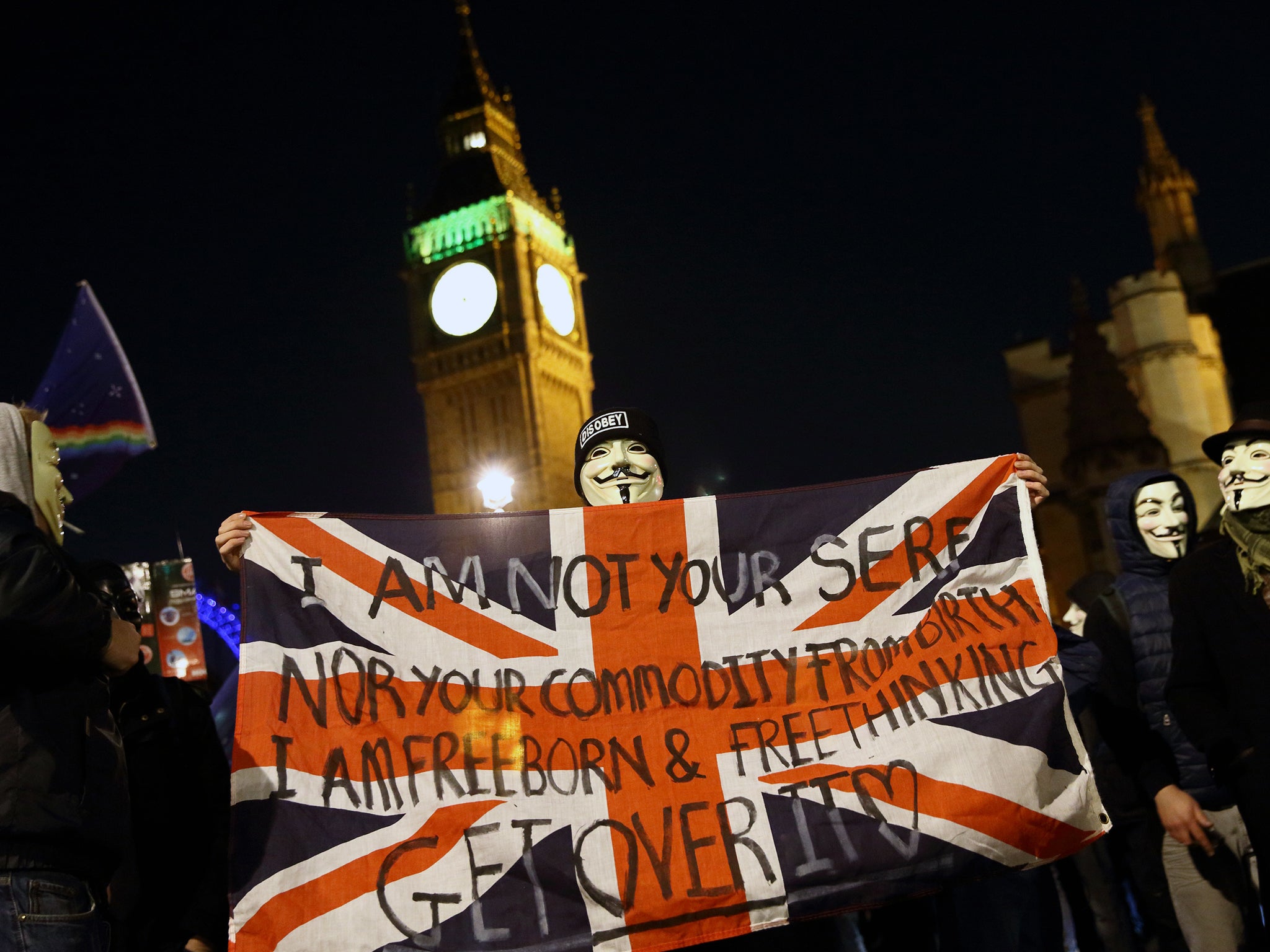Voter patience is wearing thin – which spells danger ahead
As voter turnouts decline, so does the legitimacy of any new government


Your support helps us to tell the story
From reproductive rights to climate change to Big Tech, The Independent is on the ground when the story is developing. Whether it's investigating the financials of Elon Musk's pro-Trump PAC or producing our latest documentary, 'The A Word', which shines a light on the American women fighting for reproductive rights, we know how important it is to parse out the facts from the messaging.
At such a critical moment in US history, we need reporters on the ground. Your donation allows us to keep sending journalists to speak to both sides of the story.
The Independent is trusted by Americans across the entire political spectrum. And unlike many other quality news outlets, we choose not to lock Americans out of our reporting and analysis with paywalls. We believe quality journalism should be available to everyone, paid for by those who can afford it.
Your support makes all the difference.The British people have borne relentless austerity with remarkable patience. But new polls suggest that this quiet acquiescence is not going to last beyond the election. The Financial Times has found that only two in five voters believe more austerity will be needed in the five years after 2015. Most people think that an efficient government could finish off the necessary reduction in the budget deficit by cutting waste rather than by continuing with policies that affect ordinary people.
Impatience with austerity could be an important feature of the period that will immediately follow the election – a time that is already promising to be difficult. For instance, there is the possibility that the proportion of the electorate that actually goes out and votes on 7 May 2015 will fall to a new low.
In 1950, when Labour had created the welfare state and post-war austerity was coming to an end, a record 84 per cent of eligible voters went to the polls. Labour’s massive majority of 146 seats in 1945 was cut to five seats. A fresh election was called in 1951 and the Conservatives regained power with a majority of 16. That was our political system working at its best.
Turnout then fluctuated between 70 per cent and 80 per cent until Tony Blair’s victory in 1997. After that, turnout dropped precipitously to 59 per cent in 2001 but it recovered to 65 per cent in 2010. Now, however, the respect in which politicians are held has fallen so sharply, with their honesty and their competence questioned on a daily basis, that many more people than usual might withhold their votes.
Further declines in turnout would, however, call into question the legitimacy of the new government. Until recently, successive British governments have had legitimacy in large measure. That is why we are mostly law-abiding, why we tend to pay our taxes, and why we are relatively uncorrupt. But if legitimacy were undermined, we should have entered a new situation that would be a discredit to our democratic traditions.
Moreover, there is the likelihood that no single party will win an outright majority in 2015. A period of frantic bargaining between losers would begin. A new coalition might emerge, likely to be less stable than the present one. Or perhaps the party with the most seats would govern as a minority party in the House of Commons and dare its rivals to vote it out.
That, in a sense, is the detail. The outstanding fact would be that our political system would have shown itself no longer capable of producing stable government. We would ask how had this come about and we would swiftly identify the reason: that Parliament had been captured by a small group of highly professionalised politicians, the so-called political class – borderline dishonest people who have done nothing else but politics in their lives since they left university and whose only interest is securing office.
Whenever I hear David Cameron refer to the “national interest”, I always cross out the word “national” in my mind and substitute “Conservative Party” because that is what I believe he really means.
But more dramatic than any of this is the coming austerity shock. For what the Financial Times’ deep analysis of figures for government spending has unearthed is that less than half the reductions in public spending required to balance the books have been made so far.
Cameron was simply wrong when he told the Conservative Party conference last month: “We are going to balance the books by 2018, and start putting aside money for the future. To do it we’ll need to find £25bn worth of savings in the first two years of the next Parliament. That’s a lot of money, but it’s doable.” Was the Prime Minister deliberately trying to mislead us? The annual savings that are required amount to some £48bn.
So the biggest question facing the country as we prepare to go to the polls is how are we going to handle the large and enduring budget deficit. If we try listening to what the party leaders say about this, we shall have to strain our ears. They probably won’t say much about the problem at all. If this is the case, we won’t have been given the information we need to vote rationally.
And then, when the austerity bombshell drops after the election, there will be disappointment followed by bitterness and cynicism. We shall frequently hear the damaging criticism “You can’t believe a word they say”. Only after that, perhaps, will come the most dangerous sentiment of all: we cannot go on like this.
Join our commenting forum
Join thought-provoking conversations, follow other Independent readers and see their replies
Comments